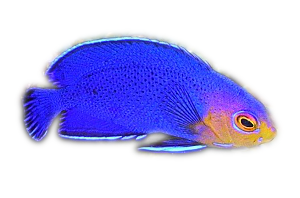
By Bob Goemans

Hi Bob,
Thanks for your help with my low pH and calcium reactor issue recently. All is fine now and the tank is a running treat, the best success I've ever had in the hobby!
I have 2 quick questions:
1. Which is better for water changes (convenience aside), natural or synthetic seawater. I live near the sea so our aquarium shops have easy access to natural seawater. However I'm concerned there may be some pollution or 'die off' of organisms in this natural water, contaminating my now nice reef.
2. Do you feed your corals, (mine are mainly SPS) with anything?
Thanks for your expertise and time as always.
Marcus Crossett
Melbourne, Australia
Hi Marcus,
Thanks for the feedback, and happy to see the aquarium is doing well. As for your question on the use of natural seawater, depending upon the area of collection, if pristine it would be the far better choice. So that's a question to be asked of your local shop owner. If pristine, then the second question is 'how long have they had it?' If not used within about twelve hours of collecting, its possible seawater can quickly become somewhat toxic due to the quick die-off of its plankton. Keep in mind freshly collected seawater may look perfectly clear, but it actually teems with microscopic organisms. These tiny organisms, animals and plant wanderers commonly called "plankton," will die-off when their food supply, usually each other, is consumed. The result can be an ammonia-laden soup.
If the freshly collected seawater cannot be used quickly it can be stored in sealed plastic or glass containers in a dark area for up to two weeks. Darkness simply prevents unwanted algae growths. Prior to its use the die-off on the bottom of the container should be siphoned out and the water aerated for 24 hours. Hopefully, it's collect away from inshore areas where sewage, fertilizer, insecticides, heavy metals and other pollutants may tend to collect.
And no, I do not normally feed my corals, however, I do experiment with some species so as to observe changes in their status. I concentrate more on placement of species, and research their areas of origin so they have sufficient light and water movement.
Hope this helps,
Bob